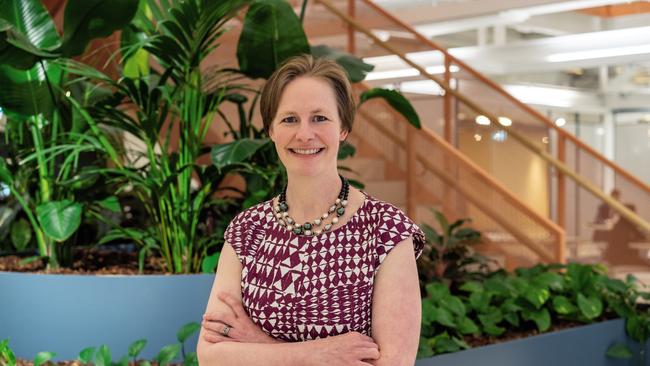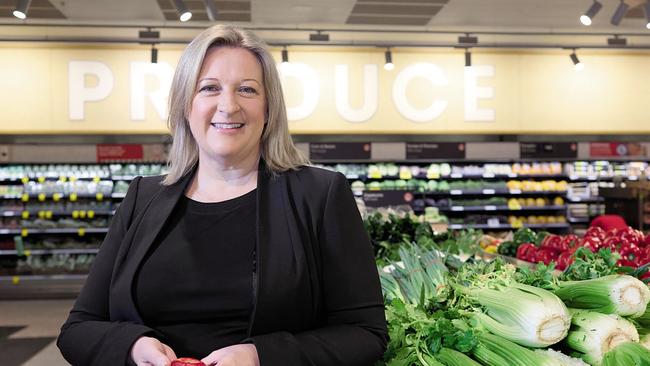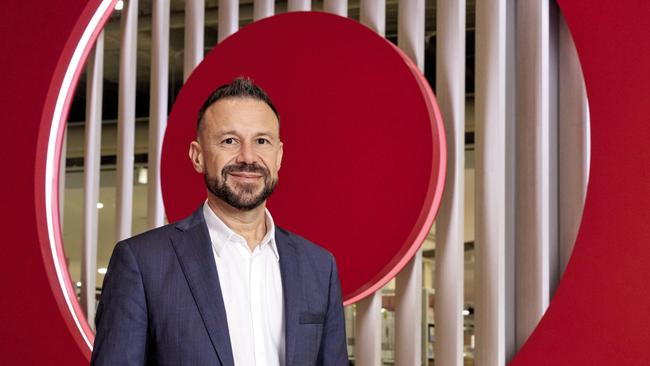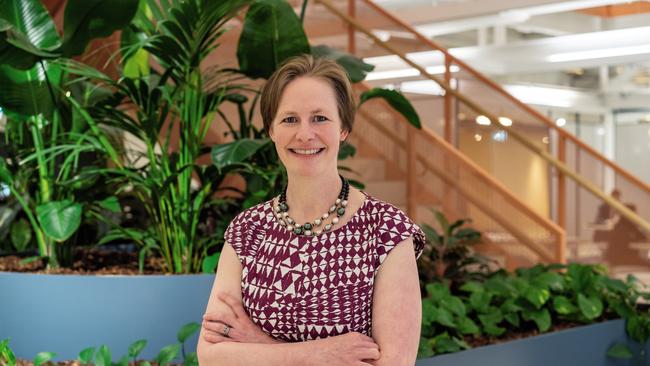Staff and customers demand retailers make bigger inroads on their green commitments
When Brooke Donnelly heads into a Coles store, she not only gets a real world view of its sustainability initiatives but also a stark reminder what its customers want.

When Brooke Donnelly heads into a Coles store, she not only gets a “real world” view of the sustainability initiatives implemented by the retailer but also a stark reminder that it’s not just Coles customers increasingly questioning the “green” credentials of where they do their grocery shopping.
“I go to stores and talk to people, our team, and there are 130,000 people at Coles, and I’ve yet to find one of them who isn’t some kind of sustainability advocate and champion – it really is in the lifeblood of Coles,” says Donnelly, the general manager of sustainability for the supermarket chain.
“They are so engaged and it is so wonderful for a person like me to see that. That real passion for sustainability and, interestingly, how to achieve it, trickles right down through the business.”
For Coles, the shift towards sustainability and a green future is more than just polishing up its eco-friendly credentials and putting a few solar panels on a store roof. It has, as Donnelly describes it, become part of the supermarket brand’s DNA. She says while it’s important to Coles executives and its shareholders (especially the large superannuation funds that demand action on sustainability), it’s as important to staff and customers.

As with many retailers, a coherent and well-laid-out strategy around renewable energy, sustainability and reduction of its carbon footprint has become an integral part of Coles’s social responsibility.
“There’s an expectation that you are doing certain things. That you do have ethical sourcing, that you are looking to ensure that you’re having the most sustainable products you can, and that you’re meeting those requirements and expectations around things like food waste, managing that and diverting it from landfill,” Donnelly says.
“All those kinds of things become important for customers just to understand that, when you come into our store, we are going to ensure that you’re in a retail environment that’s the most sustainable that we can make it.”
Green, renewable and sustainability initiatives are also crucial when it comes to hiring staff, with Donnelly confirming that the subject comes up often in job interviews and can be an important lever for attracting talent in what is now a highly competitive labour market.
“It’s not only to attract staff but to retain them,” Donnelly says. “One of the key drivers of retaining staff is our commitment to sustainability and the authenticity of our commitments and integrity of what they see operating in our stores.”
She highlights a Coles partnership deal with energy supplier Origin as reflective of the supermarket’s strong green agenda. It will see the companies co-invest in renewable energy and battery assets at up to 100 Coles supermarkets and liquor stores across the county.
In the next three years, Coles also aims to install 20 megawatts of solar panels on top of 100 supermarkets nationally, with batteries to be fitted at one third of the stores to capture and store excess renewable electricity generated on-site.
Indeed, Coles has made significant progress this year towards its 100 per cent renewable electricity target through on-site solar and large-scale generation certificate (LGC) arrangements, which match its consumption.
In July 2022, Coles commenced its agreement with CleanCo in Queensland to purchase electricity and LGCs, and began a long-term LGC agreement with Lal Lal Wind Farms in Victoria.
Together with its LGC-bundled power purchase agreement, launched in 2021 with METKA EGN – a subsidiary of Greek industrial conglomerate MYTILINEOS – in NSW, these two additional agreements increased its renewable electricity purchases to 45 per cent of total grid electricity consumption in fiscal 2023. Coles has signed agreements with Neoen, Origin Energy, ACCIONA Energía and ENGIE to source LGCs from wind and solar farms across Victoria, NSW, South Australia and Queensland. The portfolio of generation assets includes several wind and solar farms which are under construction, as well as existing sites such as Willogoleche Wind Farm in South Australia and Victoria’s Mount Gellibrand Wind Farm.
“[The Origin deal is] an incredible initiative. It is two of the largest brands in Australia coming together to bring their best of what they both do to actually deliver on initiatives that will support our targets for our climate-change agenda,” Donnelly says.
“And one of the things we have really embraced in the past couple of years is the need to work with industry more broadly, to partner with other industry providers and with other retailers. For example, currently we are part of the soft plastics taskforce with Woolworths and ALDI – that’s three retailers working together to really address a strong customer issue and preference around managing soft plastics in our supermarkets.”
Discount department stores Kmart and Target, owned by Perth-based conglomerate Wesfarmers, can also testify to a strong sentiment among customers to which retailers need to be responding. In customer insights harvested by Kmart and Target, and supplied to The List, the retailers found that 90 per cent of Australians are concerned about at least one environmental or sustainability issue.
These range from general concerns about impact on the environment through to specific concerns about waste, packaging, and product quality and durability. And just because Kmart and Target are low price retailers, doesn’t mean that their customers don’t care about sustainability, with 95 per cent of customers expecting both retailers to take action on sustainability, and 42 per cent wanting to hear more about it.
When it comes to shoppers’ behaviour, consumers are also changing how they shop: almost half say they’re avoiding single-use plastic, and more than a third have bought products made with recycled materials. “As they make their purchase they want to feel good about their purchase, but they also want to feel good about what they are doing for the environment and the planet,” says Kmart and Target chief executive John Gualtieri.
“And that trend hasn’t just started, it has been something that’s been bubbling every year that goes by, so it just kind of magnifies and it gets more and more important.
“And I think particularly for different demographics and different generations, particularly for those in Gen Z, it is something super, super important. It is important for all demographics.”

Gualtieri says the green shift is also important to staff of the retail giants, with many initiatives having their start at a store or with buying teams. Staff can see the impact they can have from green and sustainable energy, responsible sourcing of fashion and other parts of Kmart and Target’s vast supply chain.
Last year Kmart and Target achieved an equal first ranking in the 2022 Fashion Transparency Index (FTI), marking the second year running that both brands achieved a top 10 place in the internationally recognised index. The FTI ranks 250 of the world’s largest fashion brands and retailers on key metrics and discloses information about their social and environmental policies, practices and impacts in their operations and supply chain. Kmart and Target were the only Australian brands to be featured in the 2022 top 50 rankings.
A new initiative Target has just unveiled is the launch of an industry-first range of 100 per cent recyclable, plastic-free Christmas wrapping paper, cards, tags and bows. It is priced the same as the non-sustainable alternative and will help feed that growing customer hunger for more sustainable gift giving that is emerging as a major trend for retailers. It is estimated that Australians rip open about 150,000 kilometres of gift wrap every festive season – enough to wrap around the Earth almost four times.
Each product within the new Target range will be 100 per cent plastic free and recyclable right down to the packaging, meaning the entire offering can be recycled via kerbside collection bins, and easily identifiable for shoppers through the Australasian Recycling Label (ARL) Program on-pack labelling.
Gualtieri says this green and sustainable packaging initiative was 18 months in the planning.
For Officeworks head of environmental, social and governance (ESG) and corporate affairs, Fiona Lawrie, the push for more sustainable practices is coming from staff and customers alike and has seen the nation’s largest stationery retailer make some large investments and pledges in the field. These include its 2025 goal to have 100 per cent of its stores and distribution centres powered by renewable energy.
“Overwhelmingly our team members expect us to take a leading role in mitigating climate impact,” says Lawrie of the genesis for change .

This has seen the retailer install rooftop solar at 26 of its stores, with plans for 50 more Officeworks locations to have solar by the end of the financial year, with the company also procuring clean energy from green power companies for its store network.
This year Officeworks opened a new purpose-built import distribution centre in Altona, Melbourne, that features a range of leading green energy and sustainability attributes, including a solar panel system that is not only good for the environment but also expected to save Officeworks at least $30,000 a year in energy bills.
Much like the experience at Kmart and Target, Officeworks shoppers are calling for this as they make purchasing decisions. “Our customers are expecting us to take a leading role, but we are also seeing great commercial benefit in terms of being able to mitigate a lot of the price hikes in … energy by being a bit more independent and having the stability of our own arrangements,” Lawrie says.
The retailer has seen a growing interest in recycled and sustainable products by its shoppers for some time now, with those items seen as being more sustainable proving popular at the checkout. Officeworks has a range of “people and planet positive” products that have strong environmental credentials and this category has grown quickly in the past two years.
“So these might be an eraser that is more recyclable at its end-of-life, or a highlighter built with recycled components, and we have seen that range just grow significantly in the past two years; and in many categories it outperforms its non-sustainable alternative. We are growing that significantly because our customers are asking for it,” Lawrie says.
Another program sees Officeworks plants two trees for every one used in an Officeworks paper-based product, which Lawrie says really resonates with customers as they see the real-world impact of their shopping decisions. Officeworks is about to plant its two-millionth tree under this scheme.
Officeworks also now has in place its first battery at a retail store that can store solar energy, with plans to roll that out across its retail portfolio.
For retailers then – and just as importantly, their customers and employees – the future is very much a shade of green.




To join the conversation, please log in. Don't have an account? Register
Join the conversation, you are commenting as Logout